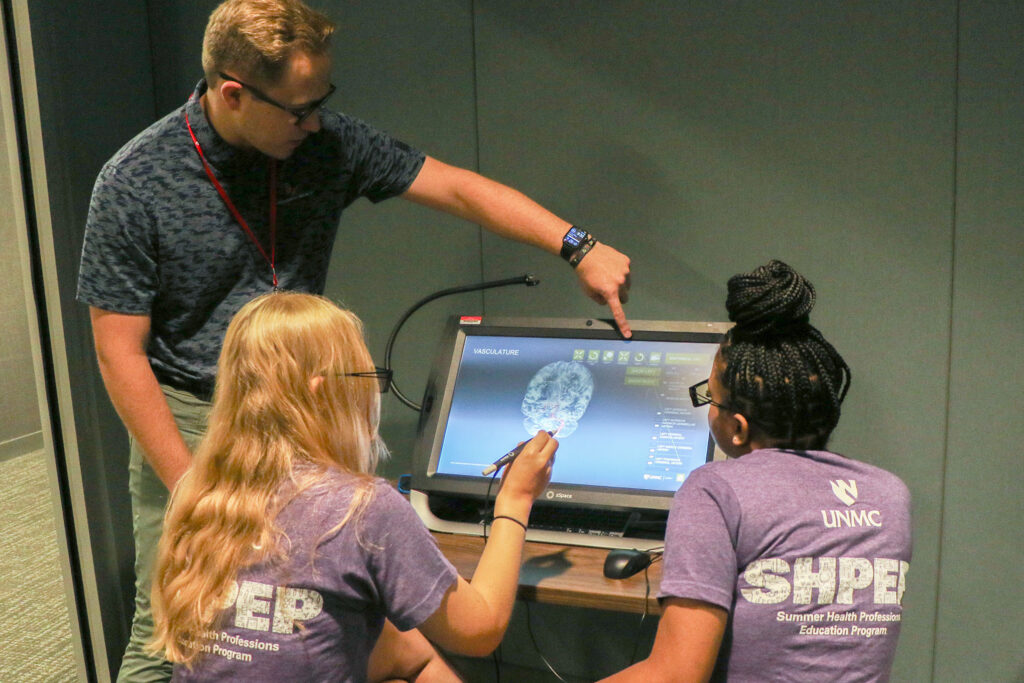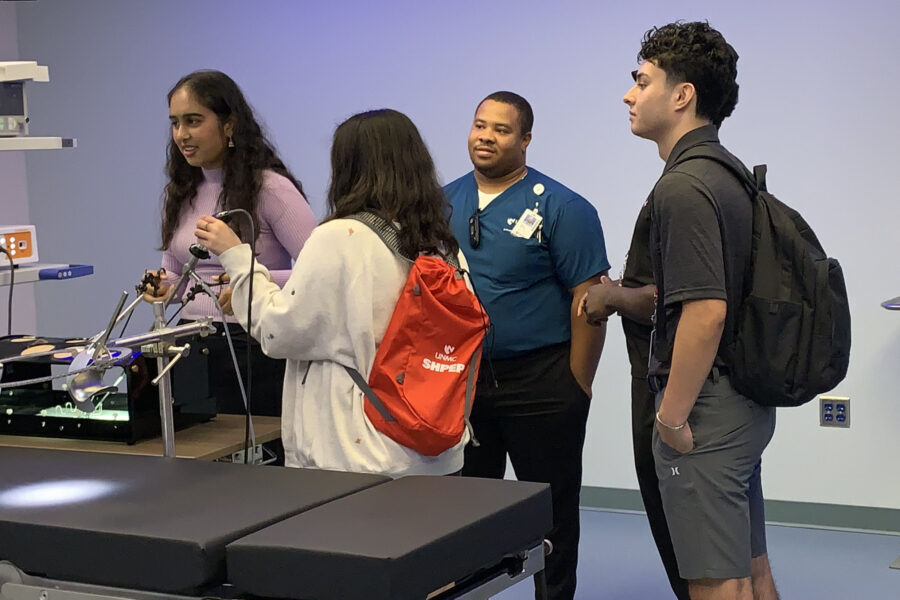This summer almost 80 first and second-year college students got an extended exploration of careers in health care during the Summer Health Professions Education Program at UNMC.
SHPEP provides opportunities to students from groups that are underrepresented in the health professions and students from economically or educationally disadvantaged backgrounds. Students visiting UNMC represented 20 U.S. states and territories, including the greater Omaha area.

The program offers exploration of careers in medicine, dentistry, nursing and pharmacy by providing clinical and population health experiences, academic enrichment in science and math, career development activities and daily community learning circles led by UNMC students who also serve as peer mentors. UNMC’s SHPEP program – one of 12 sites funded by the Robert Wood Johnson Foundation – places emphasis on immersing scholars in concepts around the social determinants of health and health disparities.
The program has been in existence at UNMC since 2006. This year, a hybrid experience was offered – with two virtual weeks and four weeks attending in person.
One day in July, participants learned about the Davis Global Center and iEXCEL’s cutting-edge medical simulation technologies. They saw high-tech animation in the holographic theater and experienced virtual reality in the iEXCEL Laser CAVE-5, as well as other simulation and visualization technologies.
“You’re not just watching it, you’re not just learning about it – you’re doing it,” said Elisabeth Barrett, iEXCEL’s marketing and production coordinator.
During a panel discussion with iEXCEL staff, Wayne Howell, a surgical simulation specialist and SHPEP alumnus from 2017, urged the students to be open to different experiences and network with other participants to build good connections.
Said Howell, “Take advantage of the time that you’re here.”
Shirley Burns, a student at Southern University in Baton Rouge, Louisiana, on track to graduate in 2025, said the program should help her decide her direction in her planned nursing career – either going into geriatrics or occupational therapy.
“This is great,” she said. “This is giving us a lot of opportunities.”
Giselle Lucio, who attends Florida International University, said “99%” of the students in the program have imposter syndrome – having a self-doubt in their capabilities to complete the big tasks before them.
But ever since the program started, Lucio said, every person they’ve encountered around the med center has been supportive, telling them, “You’ve got this. You were selected for a reason.”
Sonja Tutsch, PhD, SHPEP program manager at UNMC, said that while impostor syndrome is common among college students, students from groups that are underrepresented in the health professions often need extra support and a tailored intervention that helps them feel welcome in higher education.
“We interact with our scholars as if they were already pursuing a health professions education with us,” Dr. Tutsch said. “We see them as important assets to university medical center settings and spaces of higher education.”
Pam Boyers, PhD, UNMC’s associate vice chancellor of clinical simulation, iEXCEL, said the important work of bringing students through the educational pipeline has to do with presenting opportunities and offering encouragement and inspiration.
“Anytime we can host young people who aren’t yet sure what the world offers,” she said, “iEXCEL and the staff from so many different backgrounds open their eyes to things that are truly within reach.”
